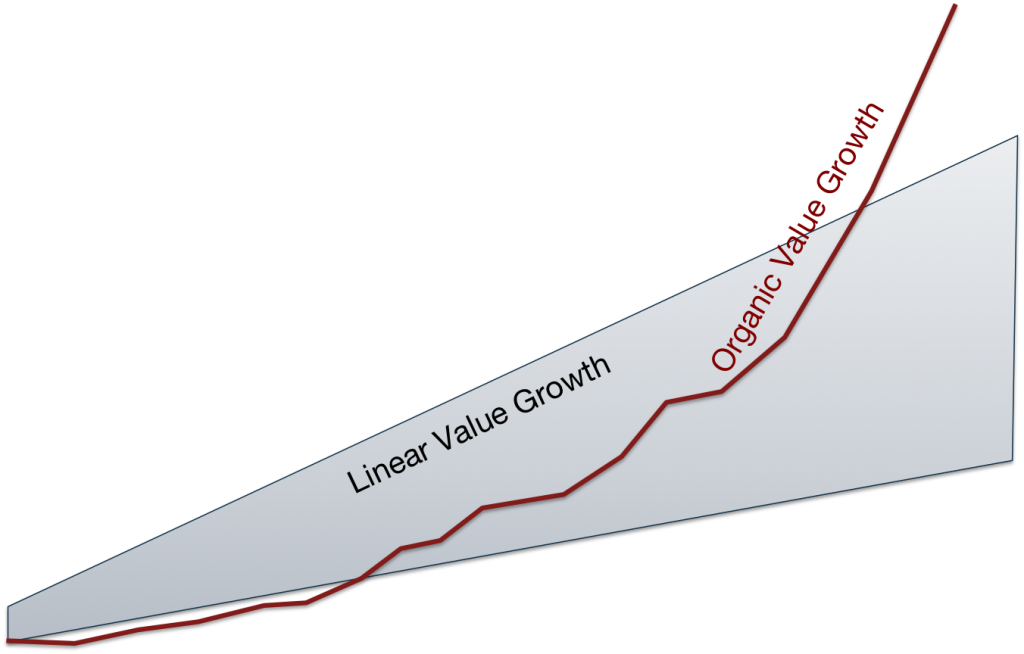By Rachel Happe, Co-Founder of The Community Roundtable.
While the ROI conversation around social business and community initiatives seems to have died down a bit as more practitioners have figured out how to measure value and share their approach, it still remains a barrier in setting appropriate expectations and planning with executive stakeholders.
One of the core issues is that business planning and modeling has, more or less, been done through linear techniques. Said a different way, most business modeling represents transactional or mechanical process change – not organic process change.
The image below demonstrates the difference.
Organic process change depends on a change in behavior for the agents in question – in social networks those agents are humans. Introducing a new behavior into a ecosystem is very, very hard at first – very few people want to be the weird dancing man, or even the second weird dancing man. You need to spend a lot of time with a few people to get the first change in behavior – or find the the people that don’t mind being weird. Once the new behavior is exhibited, however, it is much easier to inspire subsequent behavior changes and as behaviors change, ROI starts to accrue at an accelerating pace.
The trick and the challenge is to go slow so you can go fast but that is in direct opposition to how most executives think about deployments or product launches. Instead, their experience is predominately with a linear ROI models, which creates pressure to for immediate value. Ironically, in community approaches when you go for scale first it is much harder to ever achieve the behavior change that creates sustainable value.
————-
The State of Community Management survey is our annual research initiative which focuses on community maturity assessment and will explore the questions:
- How are communities performing?
- What are the standards and strengths of online communities today?
- What opportunities should community managers focus on to grow their programs?
This year’s research was developed in collaboration with TheCR Network’s Community Maturity Assessment Working Group, a set of experienced community managers and practitioners. Data will determine how communities are performing in the eight competencies in TheCR’s Community Maturity Model.
Interested in Community ROI?
Use our online Community ROI calculator to determine what the ROI of your online community program is. Start now.

